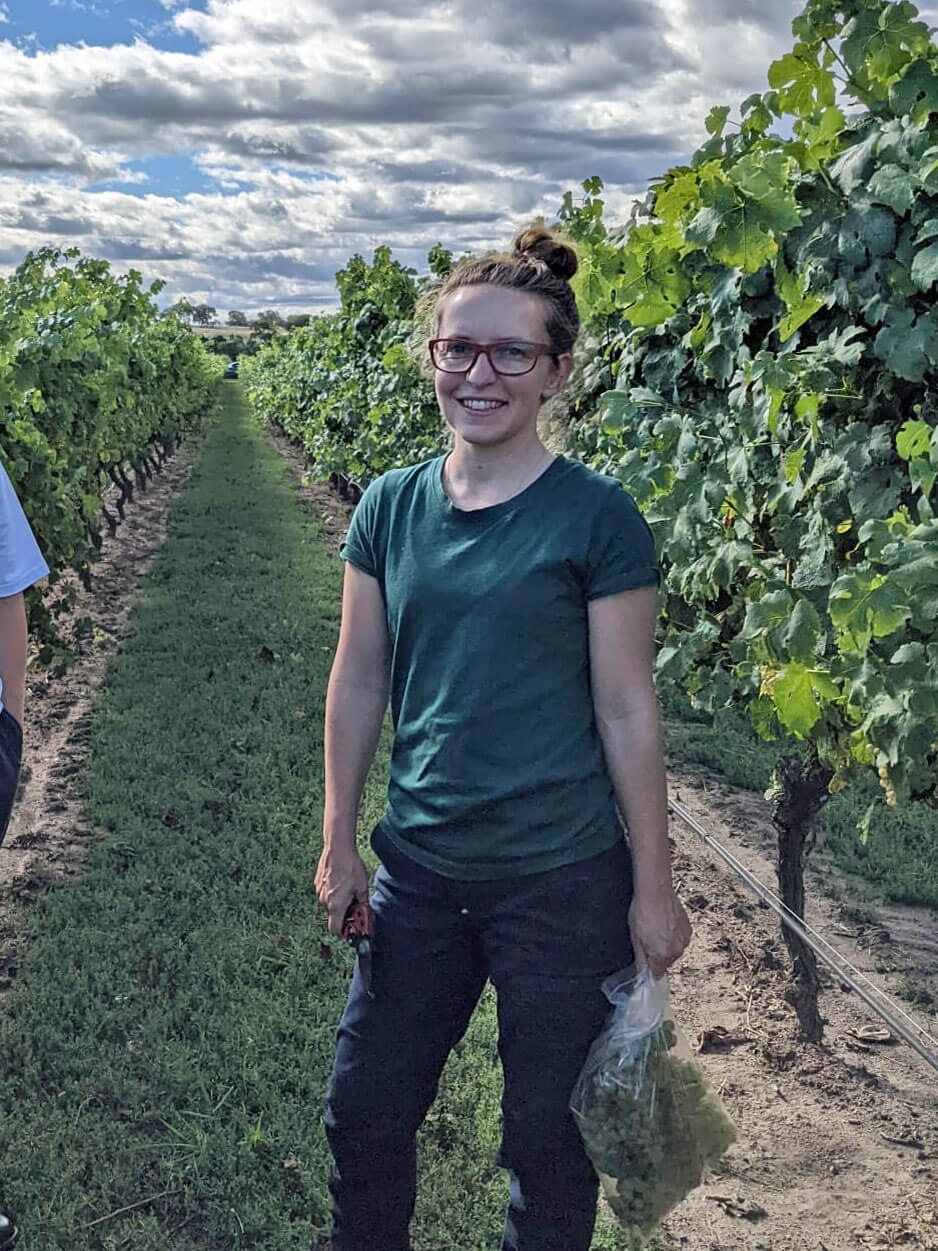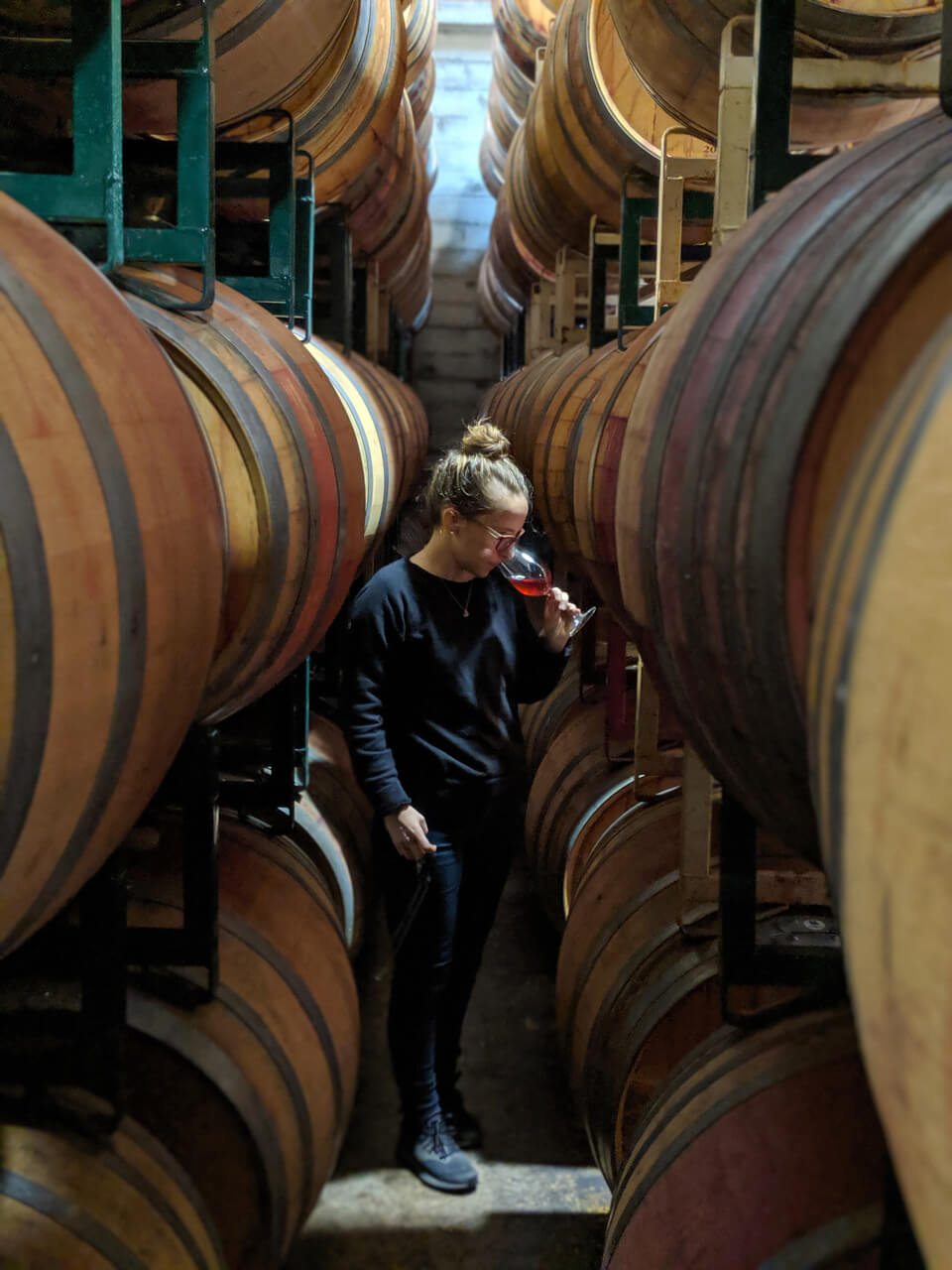Erin Frances Pooley began making her own wine in 2012, starting with a Semillon from California. This wine was held back for three years before being released. In 2020, after a decade in the US, Pooley returned home to craft wines from North East Victoria under her Little Frances label, complementing a catalogue of pre-Covid Californian wines. Today, the Little Frances wines are produced in Beechworth, with Pooley’s range focusing on bottlings of Beechworth fruit, alongside selections from further afield. All wines feature a lo-fi lean, yet they showcase a clear expression of variety, vintage, and site.
“The intent of Little Frances is to make delicious table wines which work on any dinner table,” says Pooley. “I love wines that speak of the place they come from – never manipulated to be something they aren’t already inclined to be. I take a light touch in the winery: native fermentations and malo, hyper-oxidation of the whites, neutral barrels, ageing on lees and minimal sulphur. The wines defy distance and elicit a sense of global community by showcasing sites across Australia and California. They celebrate connection, personality and friendship.”
Pooley is a first-generation winemaker who notes that she had no connection to the wine industry beyond keen consumption when she started her winemaking journey. “As a 19-year-old, I worked summer in the Okanagan Valley tending to vines, from suckering to harvest,” she says. “I was enchanted, and by the time I arrived home had enrolled to study at CSU in Wagga.”
Pooley worked harvest in McLaren Vale, Sonoma, Napa and the Rhône Valley, and she says that she always had a clear idea of the style of wine she wanted to make. “In 2012, with plenty of naivety and basically no money, I decided to give it a go myself. How hard could business be?” she says.
That first wine was made while in California, with Pooley purchasing a couple of tonnes of fruit from Lake County. That fruit was from a cool, high-altitude vineyard, and the variety was semillon, which is hardly a common variety in the States, but the reference back to Hunter semillon was an irresistible one for Pooley.
Making the wine with the “savoury texture and age-ability of Hunter Valley classics in mind”, Pooley purposely held the wine back several years before releasing to slip into the long stride of those Hunter archetypes. And while she continued to make wine in the states, a move back home was always on the cards. “I’m back home and adding Australian wines to the Little Frances line-up, she says. “The future is going to be a delicious mix of wines made from both sides of the Pacific Ocean.”
After a decade in California, Pooley is now based in Beechworth. “It’s a hotbed of independent winemakers supporting each other,” she says. “We share all kinds of things from winery spaces, equipment, aspirational bottles and advice. Running your own business can be lonely, but with constant encouragement from my local community – and beyond – the wind is at my back.”
Although since returning home natural disasters and a pandemic have provided challenges, Pooley says that has only provided ample opportunity to think about making wine in new ways. “In 2020, I wasn’t able to make wine in North East Victoria or California, but that opened the door to making two beautiful Barossa Valley wines. We can learn so much from these unexpected challenges. You never know how it’s going to serve you moving forward.”
That spirit suffuses the Little Frances brand, with Pooley always having an adaptive and fiercely independent streak. “I never wanted to make wine under the thumb of anyone else’s creative direction – it’s important to get out there and do it for yourself,” she says. “The only absolute rule I adhere to is to work with good people, in my winery, in the vineyard and my sales partners around the world. For everything else, there are no rules, only constant change, adaptation and learning.”
Pooley was one of the five winemakers chosen from throughout Australia for an experimental winemaking competition by Inkwell Wines – to work with one tonne of 2024 vintage shiraz from the Inkwell’s vineyard in McLaren Vale. Titled “Hacking the Future of Shiraz”, the intent of this project is to identifying styles and methods of producing Shiraz that resonate with new consumers: to “Regenerate Shiraz”, Australia’s most prolific grape variety, but one which has become somewhat unfashionable. Ahead of the 2024 vintage, the Inkwell Wines vineyard became Australia’s first ‘Regenerative Organic Certified’ vineyard.
The Hacking the Future of Shiraz wines are intended to be bottled by the end of 2024. While Little Frances will continue to specialize in the Beechworth region, Pooley pointed to the motivation to work with this shiraz from McLaren Vale. “I’m inspired by Irina and Dudley’s (of Inkwell) dedication to regenerative agriculture, especially in regard to diversity in the soil/cover crops,” says Pooley. “I’m keen to learn more and start applying these practices. If our soils and marc can produce everything our vines need, we reduce the need for external inputs. From packaging, to agricultural supplies, the more we can source locally the better it is for the environment, for the wines, and for business.”
Pooley notes that when she started her project there were very few women visible in the industry. “Even fewer women-owned businesses,” she says. “Much of the motivation behind Little Frances has been bucking the trend and attempting to change the ratio. Little Frances has moved into its own winery – a dusty shed –which is a game changer for autonomy and creative thinking. New-found roots in Beechworth are a solid foundation from where I will establish an estate vineyard in the coming years. I’m curious to explore and invigorated to find new boundaries to push and rules to break.”




